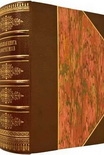Cures for Hunger Deni Béchard (easy books to read .TXT) 📖

- Author: Deni Béchard
Book online «Cures for Hunger Deni Béchard (easy books to read .TXT) 📖». Author Deni Béchard
“Look.” He motioned me forward.
The dense grass came up past my elbows, and I walked ahead, my heart beating faster. Two large shapes lay on the earth. One haggard carcass was just before me, its jaws open and its eye sockets hollow.
“You’re not afraid?” he asked as I measured my breath, studying the second bear, sprawled on its side, a naked leg bone raised stiffly, claws struck into the rank air.
“No,” I said. The bears were dead, and this wasn’t a big deal after all. I moved closer to the fanged, gaping jaws, the rotting fur like torn carpeting over the ribs. The stench made it hard to breathe.
He turned and said, “Let’s go.”
“I want to look at them.”
He chuckled. “Come on. You’ve seen enough.”
I crouched. Two long curved teeth protruded from the top and bottom jaws. A few weeks earlier, in class, I’d read a story in my fourth-grade primer about the loup-garou, the werewolf. Because my classes were in French, we often read folktales from Quebec, but this one was my favorite, and I’d imagined myself growing fangs as I stared at the full moon.
My father started walking, and I jogged after him, through the battered grass. As I followed him back across the rows, I told him the story, feeling a little breathless at the thought that what I’d just seen might not really be bears.
“There’s this hunter who likes to hunt more than he likes to be in the village. He hunts all day long and he sleeps in his cabin, and he almost never goes home or talks to anyone. Then, one night, when the moon is full, his uncles and cousins visit his cabin. But it’s empty. They find clothes covered with animal hair, and there are huge wolf tracks in the snow.”
“I heard that a lot when I was a boy,” he told me, his eyes serious, maybe a little worried, as I tried to match his pace.
If he were a loup-garou, his beard would spread over his face and neck and arms. I pictured him standing at the edge of the forest beneath the mountain, dressed in torn fur, the bear skull on his head as he stared out at the valley through the ragged jaws.
I expected him to say more about the loup-garou, but he just glanced over the spruces as we silently made our way back, pausing at a few old tool and fertilizer sheds that smelled of wet earth.
“See,” he said and touched one of their wooden corner posts. “Each year they’re smaller. They rot into the ground. The valley’s moisture eats up the wood.”
He turned in a circle, and then he kept on while I hurried after. I couldn’t remember him ever acting like this. We came to the ditch separating us from the road, walked along it and crossed over a large culvert.
As we followed the asphalt, I heard the low whine of a bicycle chain against its gears, and Ten Speed shot past with a sound like someone snapping a wet towel. Briefly, shouting voices blared from her headphones. I’d asked Ian about this, and he’d said that she listened to radio shows. We’d once found her sleeping in the hay of the barn, curled up, the voices clamoring from her frizzy hair. Then her eyelids popped open on large, terrified pupils, and she ran past us, staying crouched low, and went down the ladder and out the door.
My father glanced behind us. A white car had appeared in the distance. He kept walking, reaching out and telling me to take his hand.
The car pulled next to us, and the darkening sky warped in the window that descended on two clean-shaven men. The driver, with eyes as blue as my mother’s, said, “Excuse me. Can you tell us where André Béchard lives?”
My father squeezed my hand. He then tilted his head, scrunching up his face.
“Who?” he said in a loud, ridiculous voice.
“André Béchard. Do you—”
“Oh, ’ey, dat guy. Oh yeah, I see ’im. ’E drive a big truck and ’e out drivin’ in de city.”
The men watched as he gesticulated, and it was all I could do to stand perfectly still.
“Yeah, ’e come back later,” my father was saying. “Dat’s right, later.”
The driver gave me a long, searching look, and I barely breathed. “Okay,” he said. He drove off.
I gazed up at my father, but he just laughed.
“I played a good joke on those guys,” he said. “But don’t tell your mother. She doesn’t like jokes—not the way you and me like jokes.”
I smiled and agreed, though he had a wincing expression, nothing like the joy of escaping the train. As we walked home, he stepped faster, and the hand holding mine felt hot and damp.
✴
OFTEN, AFTER SCHOOL, I wandered the fields alone, catching frogs and grass snakes, putting them in my pockets as I explored the woods along the stream. I couldn’t stop thinking about the two men in the car. I was certain they were police. My father knew everything about police and had told me that they didn’t always dress in uniform or drive cop cars. Whenever he saw them, he made fun of their clothes, especially the yellow stripe on one leg of their pants. He said he’d have joined the RCMP himself if their outfits weren’t so ugly.
As I sat beneath the trees, a memory resurfaced: a night that I was afraid to ask about, that I couldn’t place—like a bad dream after waking, but vivid,





Comments (0)